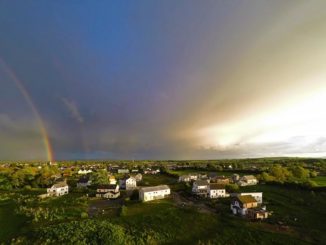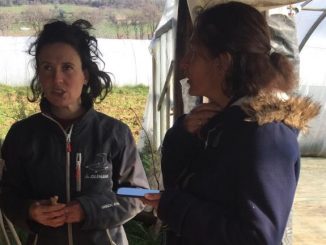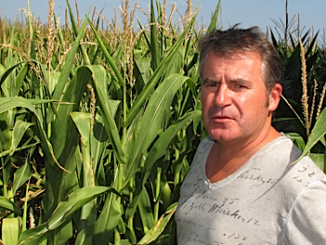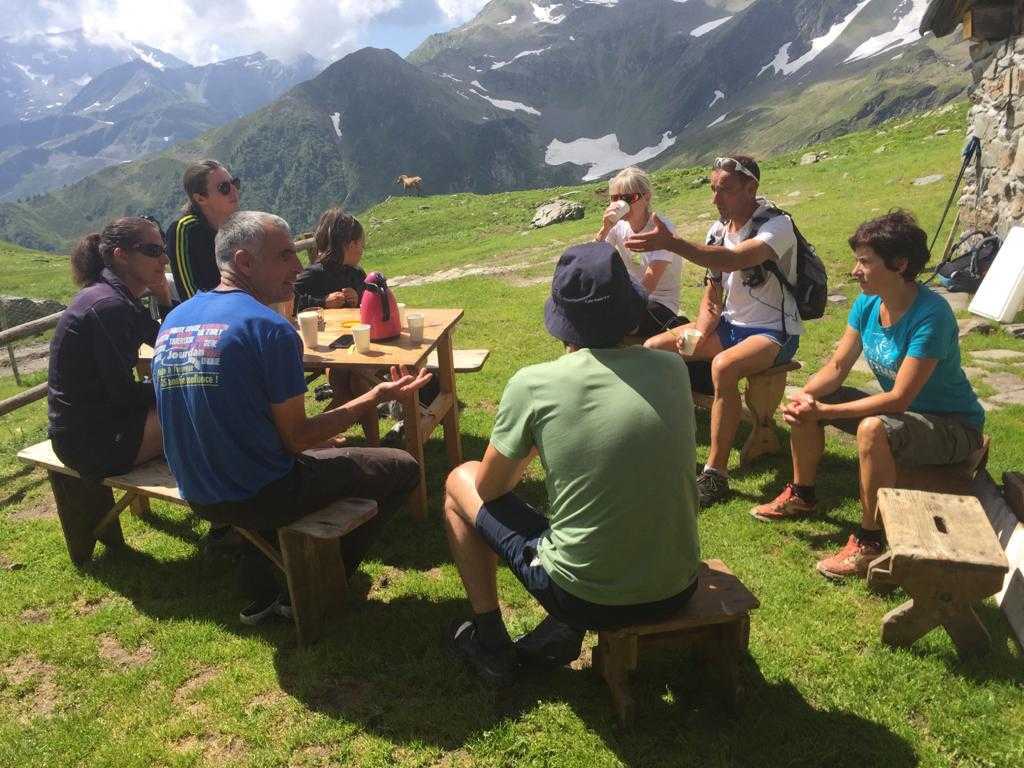
In the past two years, ARC2020 has been listening closely to voices on the ground in the French countryside. What have we learned? What do the participants have to say? And what’s next for the Nos Campagnes en Résilience project? The key themes emerging from the research so far were presented to the project participants at an online gathering in June, when a lively discussion helped to collectively shape the direction for the future. Report by the Nos Campagnes en Résilience team.
Launched by ARC2020 in late 2020, in the midst of the COVID-19 crisis, Nos Campagnes en Résilience has proven its own resilience, in the face of this as well as climate, biodiversity, and geopolitical crises.
The project is centred on connecting with rural actors on the ground: we go out and meet people effecting change in their territories. In different parts of rural France, these actors have told us about their work to improve the lot of people and planet, through initiatives that are unique to their territories, each shaped by a particular set of challenges and needs.
On June 14, we brought these participants together in an online gathering hosted with Forum Synergies. Our analysis of the interviews carried out was the starting point for a discussion on where we want to take this project, with a view to tackling challenges together.
We have identified nine overarching themes that are common to the work of all the participants. This gathering was an opportunity to gauge which of these themes we should explore further in an event we have lined up for the autumn.

How to learn about rural resilience on the ground?
The Nos Campagnes en Résilience project (aka NCER, or “Nicer”) listens to farmers and actors in rural France. We seek to understand, value and analyse their various experiments, and share these stories at European level, through a socio-ecological lens.
All of these participants are creative, resourceful, daring to try new things. In their day to day work, they contribute to a transition, helping to make their areas a better place for the people who live and work there, and for nature and the environment. Their work is inspiring. Yet they do not seek to impose their ideas on others.
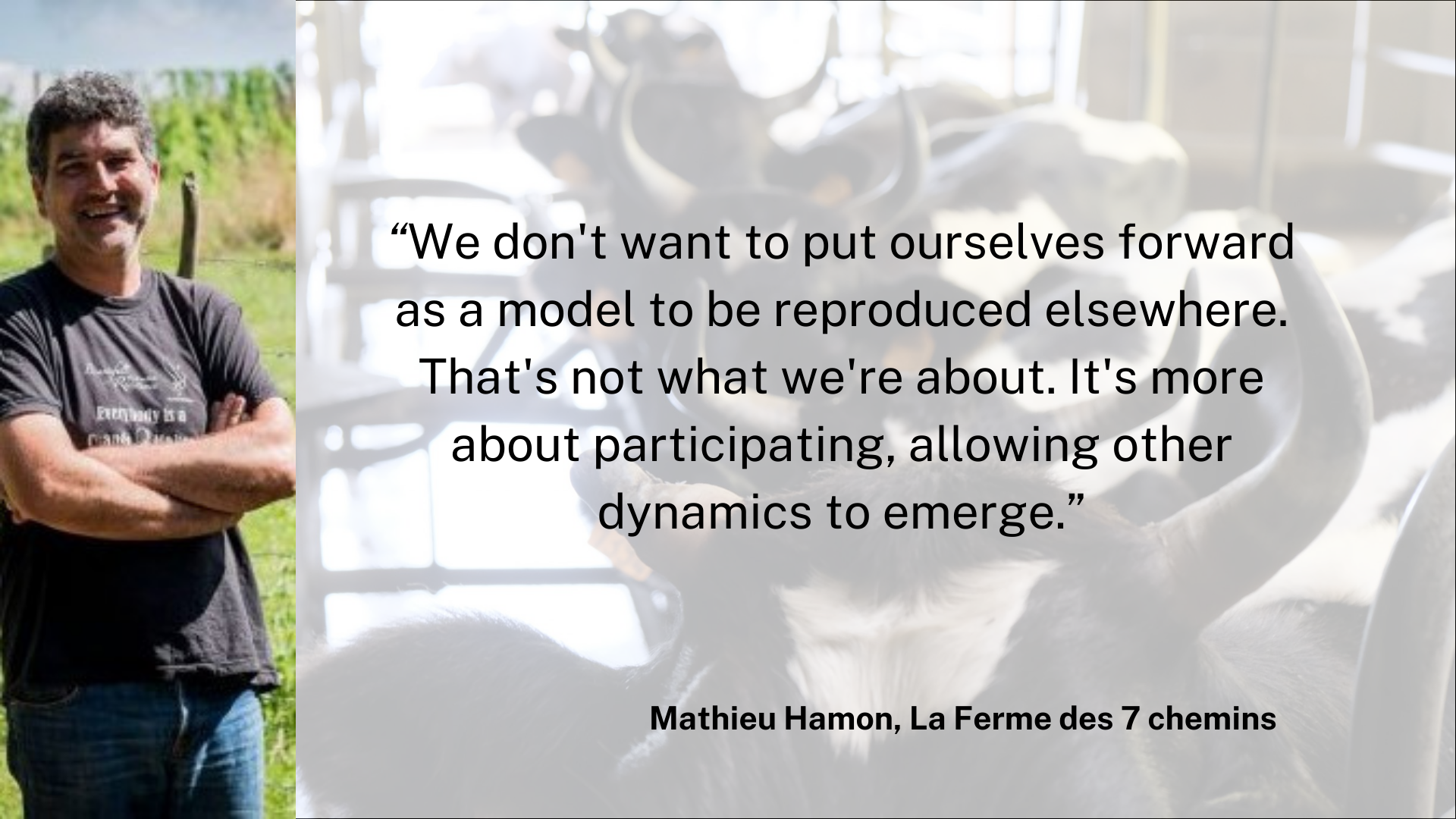
The interviews with the participants were designed to create a space for them to tell their stories in their own words. We then analysed the transcripts individually, and in a combined analysis, with a particular focus on social and ecological issues.
There were a number of limitations to this research approach. The sample was not representative, as the participants were personal contacts of the researchers, and were not precisely defined. Due to a lack of time, the research was not extended to the East and North of France. Due to the COVID-19 crisis, travel was limited, and people were unavailable due to illness or quarantine. For these and other reasons, it can be difficult to maintain relationships with participants after meeting with them, and to build the project collectively.

Meet the farmers
Stereotypes of rural people are as prevalent in France as elsewhere. But they are far from reality. The farmers we met have a good quality of life, enjoy their work, take time for themselves and their families. These are people who love life: happy, engaged, with their feet firmly on the ground.
Each of these rural actors is unique. Which is why each of their initiatives is unique, and inimitable. Keeping in mind these specificities, we found some commonalities to their work.
All the farms visited can be qualified as agroecological in the sense that their approach is economic, environmental and social (see the Agroecology Flower) However, we prefer the term ‘societal’ rather than social, as it better reflects the practices and values: these farms are keen to change things, not only for themselves, but also for society.
In each of the farms, we observed a dominant focus: economic, environmental or societal. This focus determines the approach to work on the farm, the choice of tools and financing. The following features are common to all:
-
The goal of financial independence with low investments. This limits the risk of indebtedness and dependence on banks, but can also limit development and room for manoeuvre.
-
Farms on a human scale
-
Earnings linked to production and work, not to subsidies
-
Capacity to re-evaluate and to imagine innovative solutions.
-
A global vision of agriculture with clear orientations and choices.
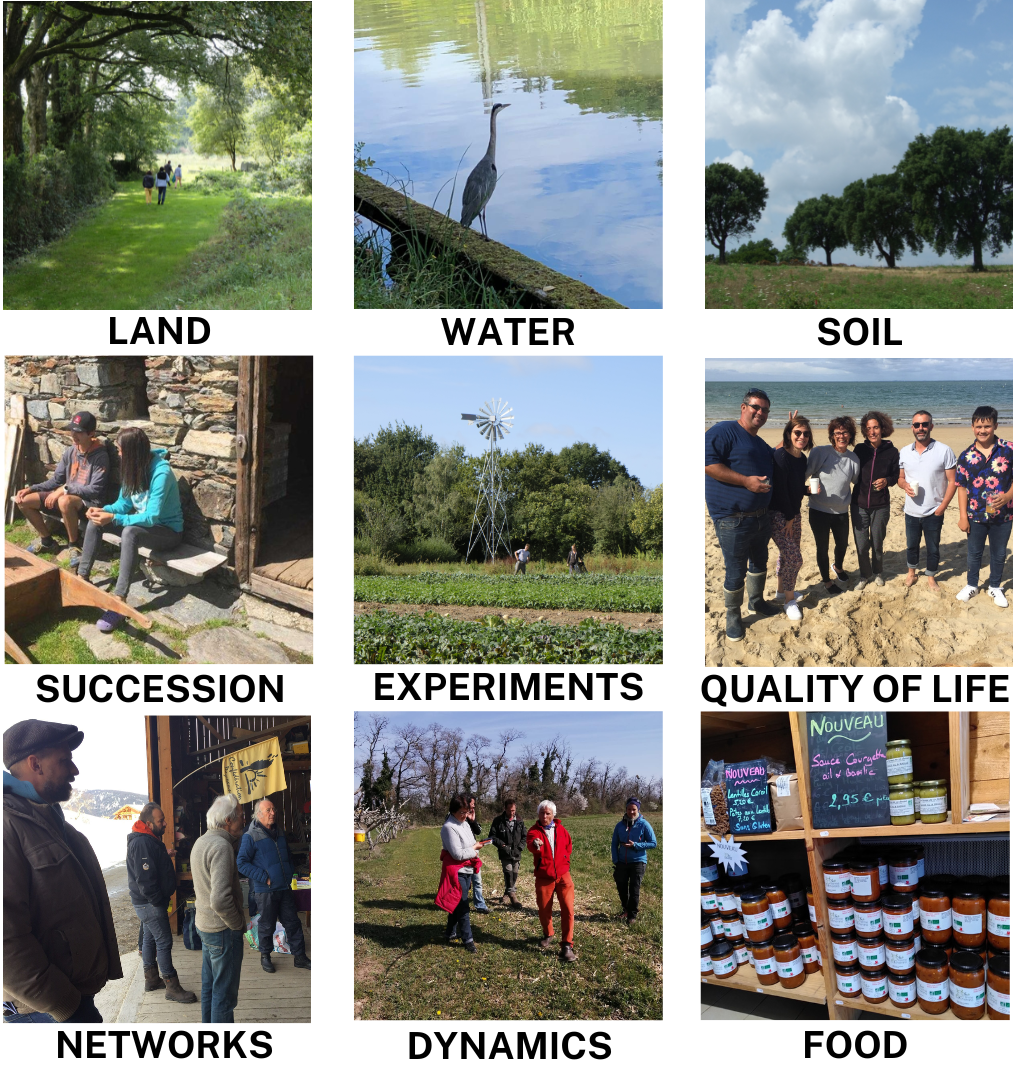
What did the participants have to say?
During the online gathering, we discussed together with the participants the themes that emerged from our interviews with these actors. Taking into account these reflections, we then prioritised these issues together, with each person selecting the three themes closest to their heart. Here’s how the participants voted:
|
What themes do we want to explore? |
|
|
Theme |
% of meeting participants who selected this topic |
| Land |
45 % |
| Water |
18 % |
| Soil |
18 % |
| Succession and knowledge transfer |
18 % |
| Freedom to experiment |
27 % |
| Quality of life |
73 % |
| Involvement in networks |
18 % |
| Dynamics of rural territories |
27 % |
| Food and its role in the local ecosystem |
55 % |
| Note: This is a consultation and not a final decision, as many of the project participants were unable to be present for the vote. | |
The following themes were chosen by this collective selection process:
- quality of life
- food and its role in the local ecosystem
- land.
The group approved this selection. These themes will therefore be explored in the coming months.
New discoveries and perspectives also emerged from the gathering. Freedom to experiment, and water management, were raised as key issues for the future. Participants also spotlighted the dynamics of local policy, as well as the issue of rural governance and farmers, and the agroecology view of farming through three aspects.
Unfortunately it was not possible for many of the project participants to attend, due to other commitments. It was especially difficult for farmers to join us during the haymaking period. From the outset of the project, we have been conscious that the participants often have outside commitments in networks and movements, and we try not to overburden them.
We are very grateful to the people who gave us their evening.

Next steps
This gathering was a milestone for the project, which is built on the principle of co-construction. Using the words of these rural actors, we were able to present their knowledge, experiences and needs. Thanks to the enthusiastic participants, it was a powerful event.
The work of the project so far, and the themes selected, will be brought to life this autumn at another event – this time in person! The weekend of 30th September to 2nd October, in rural West of France, rural actors in the socio-ecological transition will build bridges between the local and the European at a gathering organised by ARC 2020 in partnership with Forum Synergies, and with local partners Alliance Slow Food des Cuisiniers, Plessé municipality, la Ferme des 7 chemins, and PEP 44 and 49.
Nos Campagnes En Résilience is ARC2020’s project to support and connect initiatives around rural resilience in France. Visit the project page here and follow us on Instagram, LinkedIn and Facebook. If you’d like to get involved, contact our project coordinator Valérie Geslin.


